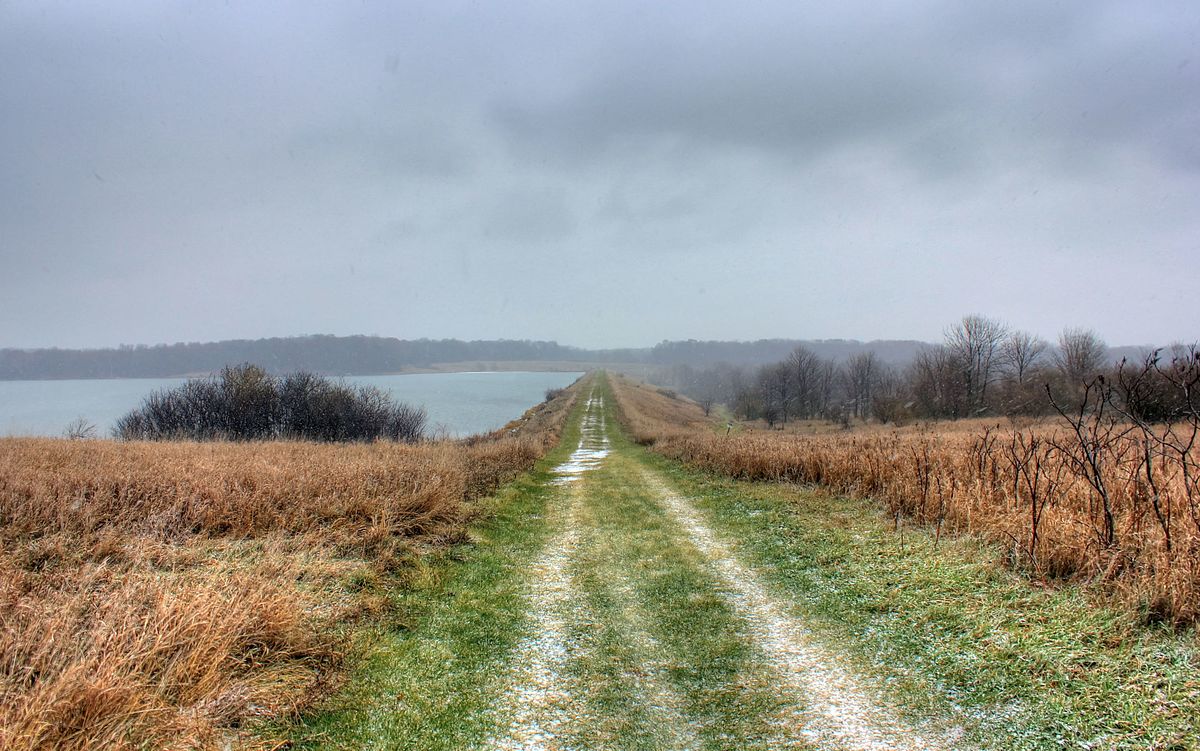
- Details
- By Native News Online Staff
Illinois state legislators joined the Prairie Band Potawatomi Nation on Thursday in support of a bill that would transfer a state park in DeKalb County back to the tribal nation on whose historic reservation the park currently sits.
State Rep. Mark Walker (D-Arlington Heights) filed House Bill 4718, giving the state of Illinois the opportunity to right historical wrongs and transfer ownership of the Shabbona Lake State Park – roughly 1,500 acres in total – to Prairie Band Potawatomi Nation.
“After more than 200 years of unfair, forced, and often illegal dealings with American Indian nations of Illinois, it is about time we started balancing our books and meeting our obligations. We can never fully fix the sins of the past, but we can all acknowledge them and begin to make some amends,” State Representative Mark Walker (D-Arlington Heights) said. “This land transfer of this Illinois state park to the Prairie Band Potawatomi is a simple and direct step that aims to minimize harm to all parties. The time for talk, bureaucracy and politics is over. Let's just do it now.”
This land transfer of this Illinois state park to the Prairie Band Potawatomi is a simple and direct step that aims to minimize harm to all parties. The time for talk, bureaucracy and politics is over. Let's just do it now.
In the 1830s when Chief Shab-eh-nay traveled from his home Reservation in DeKalb, protected by treaty, to visit his family in Kansas, the U.S. government stole and illegally auctioned off more than 1,121 acres of his land near the village of Shabbona in southern DeKalb County. The state park and houses currently sit on the Reservation land.
“Despite our land being illegally taken from us, we’re still here, living and contributing to life in Illinois, while practicing our traditions and serving our country,” Prairie Band Potawatomi Nation Chairman Joseph “Zeke” Rupnick said. “We may not yet have our Reservation land back in the hands of our Tribe, but we have the truth and increasing acknowledgement that our cause is just, thanks to the legislators standing here today.”
No Tribe has entered into more treaties with the United States government than Prairie Band Potawatomi Nation – and all of them have been broken by the United States.
In 2001, the U.S. Department of the Interior confirmed the history and legal status of the Shab-eh-nay Reservation as federally recognized Indian Country because the U.S. Government never received the required Congressional approval to auction off land that rightfully belonged to Chief Shab-eh-nay.
“These lands were an integral piece of the Prairie Band Potawatomi Nation’s cultural heritage. The inconsideration of tribal land claims has had a long-lasting effect on the Native American community, and it is time that we atone for the mistakes of the past and restore the connection between the Prairie Band Potawatomi Nation and their land,” State Senator Karina Villa (D-West Chicago) said. “I am honored to be a part of this initiative that will help cultivate a better relationship between indigenous communities and the state. Returning the land, known as Shabbona Lake State Park, will foster a healthier environment benefiting our communities and will support the healing of the Prairie Band Potawatomi Nation.”
Prairie Band Potawatomi Nation has been deprived of its ownership and use of its Shab-eh-nay Reservation in DeKalb County since the 1830s. During this time, the Nation has been denied the cultural, social, and economic benefit of those lands.
Despite this, Prairie Band Potawatomi Nation has committed to keep the park open to the public, and to improve the infrastructure and experience of the park if the legislation passes and is signed into law.
“Just last year, the Governor signed into law three bipartisan-supported bills that overwhelmingly passed the state legislature, protecting the once disparaged and violated Native culture in Illinois,” Rupnick said. “But all of this work, while extremely important, does not address the remaining central problem that must be rectified to achieve true justice for Native people in Illinois.”
“Returning our land is a necessary step toward the recognition we deserve as a people and as citizens of Illinois.”
More Stories Like This
Chickasaw Lighthorse Police Officer named Indian Country Law Enforcement Officer of the YearIndian Gaming Association Rallies Broad Coalition Against Sports Event Contracts It Calls Illegal Threat to Tribal Sovereignty
Navajo Resources and Development Committee Issues Notice on Livestock Inspection Requirements
American Prairie, Tribal Coalition Files Protest Over Rescinded Grazing Rights
Northern Cheyenne Push Back Against Trump Administration’s Effort to Alter Little Bighorn History
Help us defend tribal sovereignty.
At Native News Online, our mission is rooted in telling the stories that strengthen sovereignty and uplift Indigenous voices — not just at year’s end, but every single day.
Because of your generosity last year, we were able to keep our reporters on the ground in tribal communities, at national gatherings and in the halls of Congress — covering the issues that matter most to Indian Country: sovereignty, culture, education, health and economic opportunity.
That support sustained us through a tough year in 2025. Now, as we look to the year ahead, we need your help right now to ensure warrior journalism remains strong — reporting that defends tribal sovereignty, amplifies Native truth, and holds power accountable.
 The stakes couldn't be higher. Your support keeps Native voices heard, Native stories told and Native sovereignty defended.
The stakes couldn't be higher. Your support keeps Native voices heard, Native stories told and Native sovereignty defended.
Stand with Warrior Journalism today.
Levi Rickert (Potawatomi), Editor & Publisher


